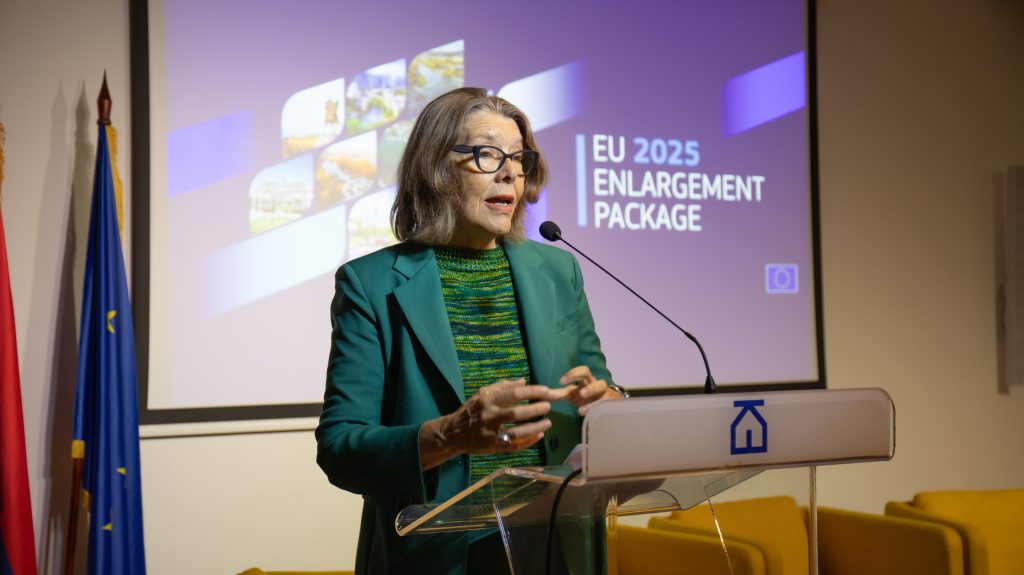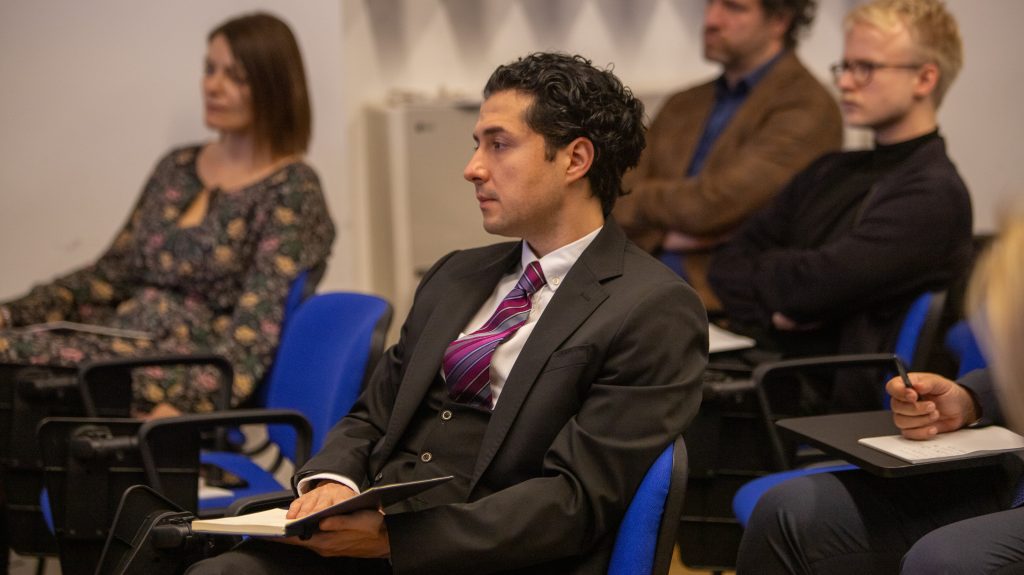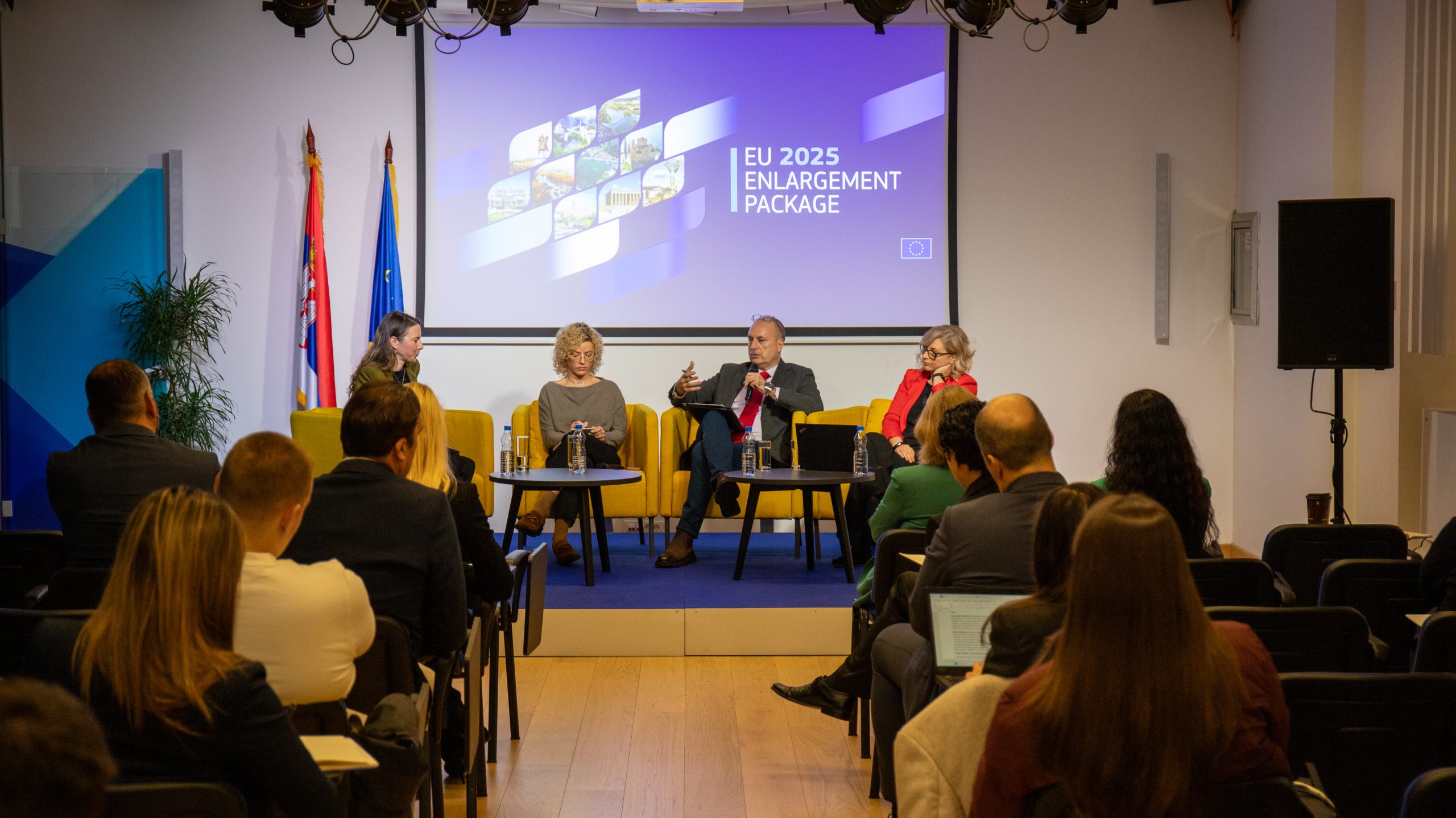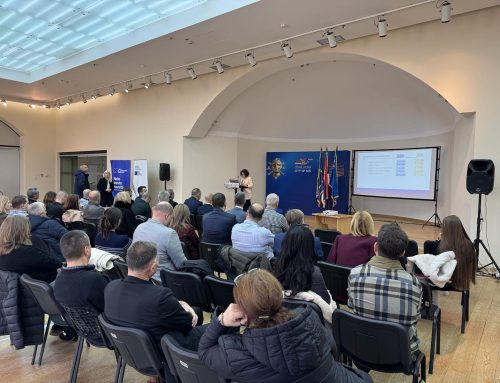In view of the upcoming Enlargement Forum in Brussels, EU Delegation in Serbia organised a panel discussion, in cooperation with the Embassy of Denmark, to explore how the European Union and its Member States are preparing internally for the next rounds of enlargement.
The event addressed the widespread perception that the EU is either unprepared or unwilling to welcome new members, and offered concrete policy options on how to integrate future members effectively while safeguarding the Union’s functioning, values, and policies.
Held in Europe House in Belgrade, the discussion brought together a broad group of Serbian and international experts, who actively participated and contributed to a highly insightful exchange.
Danish Ambassador to Serbia, Ms. Pernile Daler Kardel, whose country currently holds the Presidency of the Council of the EU, opened the event by emphasising the importance of European unity and cooperation in the current geopolitical context. She reaffirmed that the EU accession process remains open and encouraged all candidate countries, including Serbia, to seize the opportunity to advance.

Pernile Daler Kardel, Danish Ambassador to Serbia
Ambassador Kardel also expressed hope that an ad hoc working group would soon be established to assess future accession treaties, helping to ensure a more structured and forward-looking approach to the enlargement process.
During the panel, discussions focused on the inevitability of internal EU reforms in light of future enlargement, the potential content of the next generation of accession treaties, gradual integration mechanisms for candidate countries, and the budgetary implications of enlargement.
Milena Mihajlović Denić, from European Policy Centre (CEP), presented the key elements of the “staged accession” model, which CEP has developed and promoted in recent years. She described it as a pragmatic compromise between the complexities of amending the EU’s Founding Treaties and relying solely on future accession treaties. She advocated for stronger safeguard clauses, particularly in the area of rule of law, extending up to ten years after accession for new Member States. Referring to an upcoming study conducted with the Konrad Adenauer Stiftung, she noted that financial constraints are not a major obstacle to the enlargement of the Western Balkans.

Vladimir Međak from the European Movement in Serbia , argued that any temporary solution granting new Member States limited decision-making powers would be preferable to the current status quo. He stressed that existing mechanisms for gradual integration, such as the Growth Plan and the Reform Agenda, are not achieving their intended purpose in Serbia’s case, which he views as driven more by access to EU funds than genuine reform ambitions. He further underlined that any form of partnership short of full accession would be unsustainable and contrary to Serbia’s long-term interests, given its geographical position surrounded by EU and NATO member states.
Professor Ivana Radić Milosavljević from Faculty of political sciences highlighted the distinction between gradual accession and gradual integration, noting that many recent initiatives emerged from geopolitical necessity rather than strategic foresight. She warned that rising Euroscepticism in Serbia poses a growing challenge for both the EU and the country, calling for a thorough, evidence-based public discussion on Serbia’s integration to the EU and foreign policy choices. Strengthening existing EU treaties and establishing a more credible system of incentives and sanctions, she suggested, could help restore confidence in the enlargement process.




